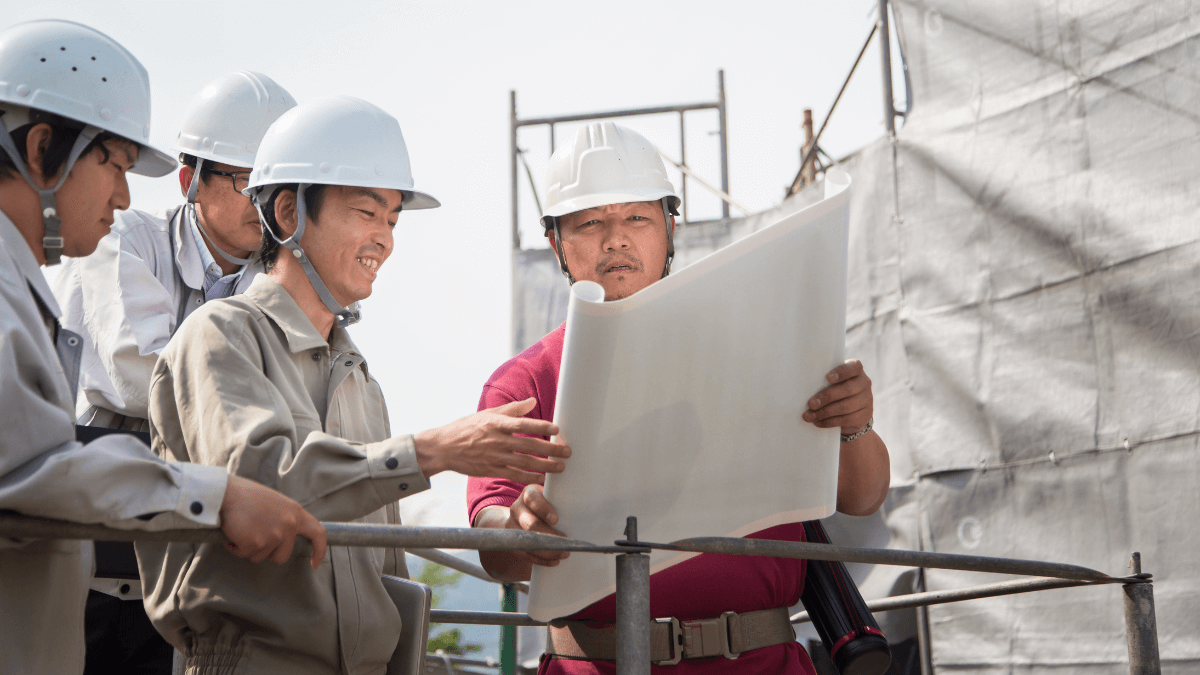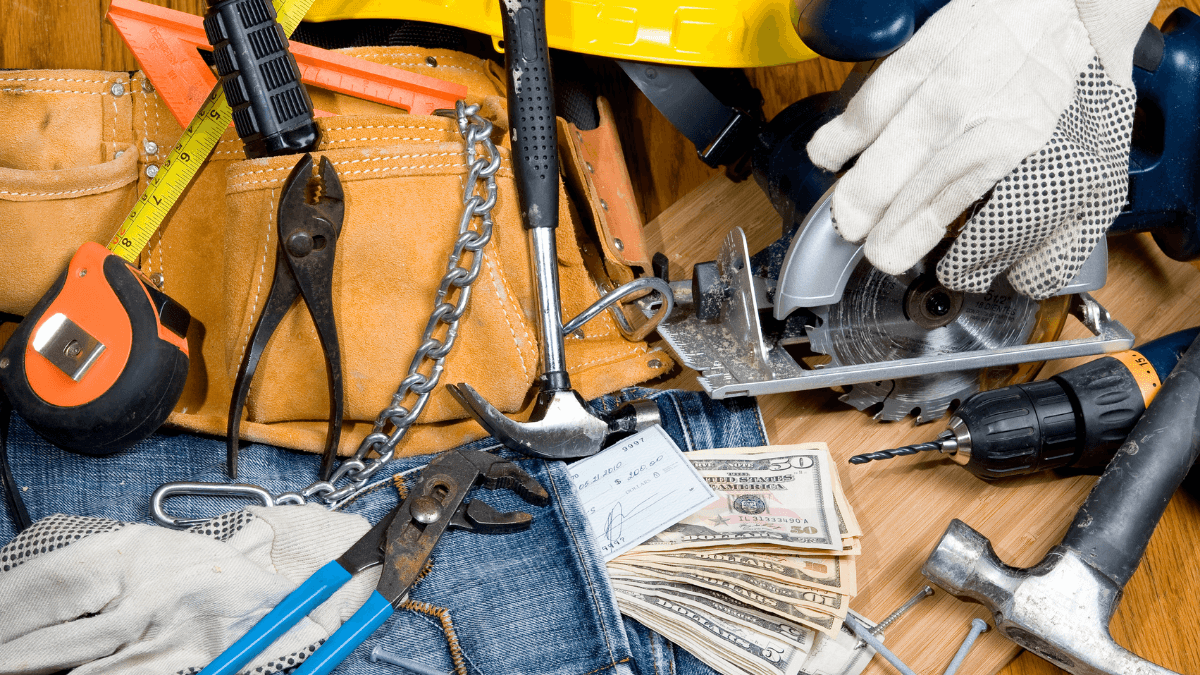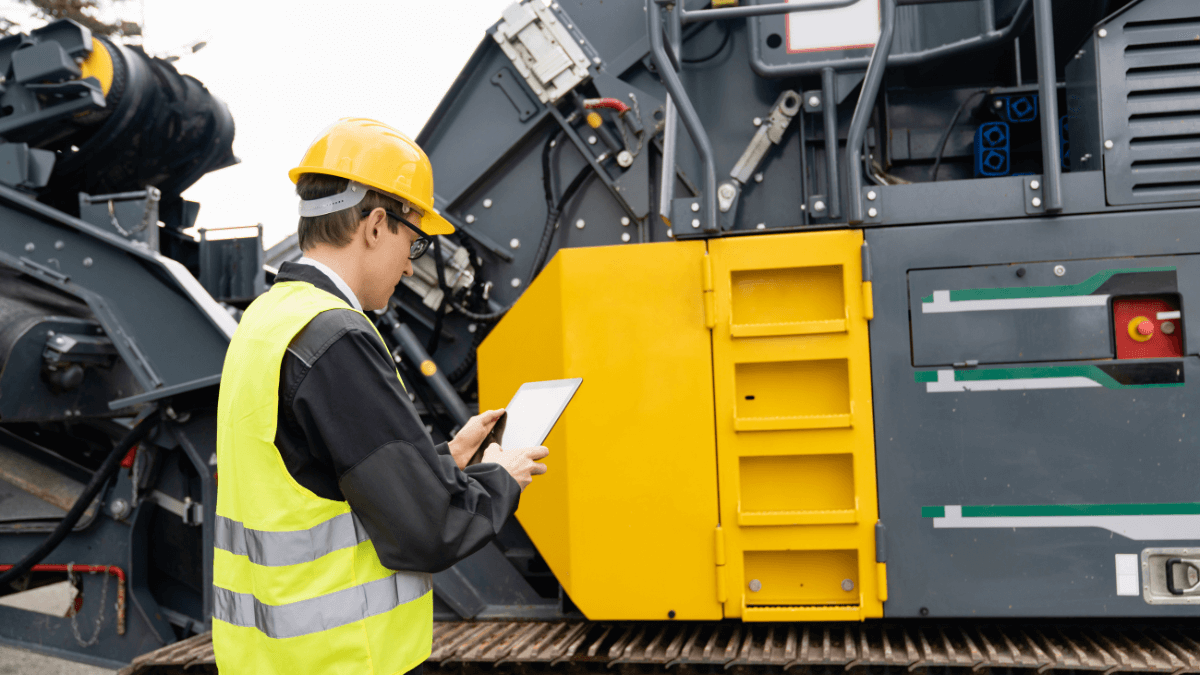Construction is an extremely collaborative industry. For a single project, you need to bring together an entire team of people with different personalities, expertise, and experiences.
What is more, simply putting people to work together doesn’t necessarily mean the construction project will be finished on time and within budget.
Construction teams work on a project for weeks, months, or even years on end, so they must operate as a unit.
This means they have to respect and trust each other, share information, and collaborate effectively.
So, if you’re having trouble improving teamwork in your workforce, look at some of our essential tips to create a more collaborative environment.
In this article...
Make Sure Everyone Understands Their Responsibilities
Most people’s negative attitudes toward teamwork stem from bad experiences in school.
The problem is not the teamwork itself but how roles and responsibilities are delegated within the team.
In a school setting, one person would usually do all the work, only to have to share credit with one or two slackers who never pulled their weight.
Like, this Reddit user who shared their experience:
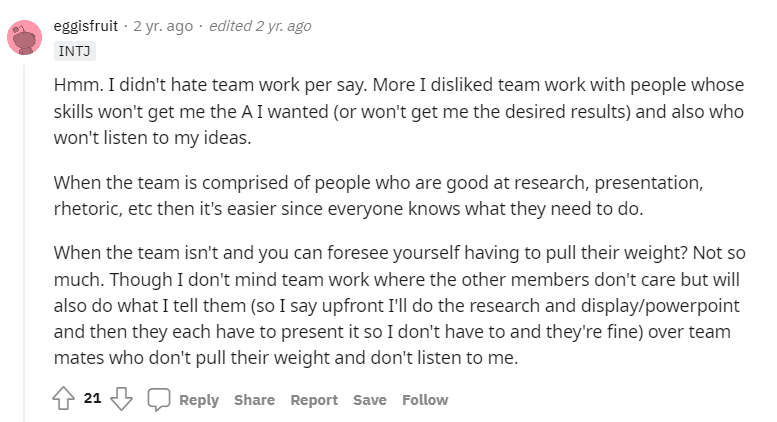
The same principles apply to construction teams.
During a construction project, people will have a myriad of different tasks to complete, so, to be the most effective, they need to understand their obligations as well as other people’s duties.
Moreover, there should be a clear distinction in their assignments. This is because overlaps can cause confrontation and result in wasted time trying to discuss how the project goes.
For example, a project manager will be tasked with creating project schedules and budgets so a contractor doesn’t have to worry about that but instead can focus on supervising the field workers and the construction task progress.
It’s much easier to slack off when the scope of responsibilities is unclear.
But once people know what needs to be done and what their role in the project is, you’ll see a boost in motivation, and work will be done to the highest standard.

Therefore, when delegating tasks, it is best to do it at the very start of project planning so there’s no confusion when the project goes into the construction phase.
In the end, if you don’t want to repeat your teachers’ mistakes, you must remember that people have to clearly understand their role in the team and the scope of their responsibilities.
Use Apps to Improve Task Coordination
If there’s one thing every team relies on, it’s effective communication. Sharing information and coordinating tasks is crucial to getting any construction project done on time and within budget.
After all, you want people to pool their knowledge and work together based on shared information.
If they work on their own and silo essential data, there’s a higher chance of mistakes happening and derailing the entire project’s goals.
So, how can you improve communication in the team?
One solution is to use various apps to collect data for better project performance and task coordination.
In fact, according to a Dodge survey, almost half of contractors use a mobile device, and 80% of them have a construction app they use for work.
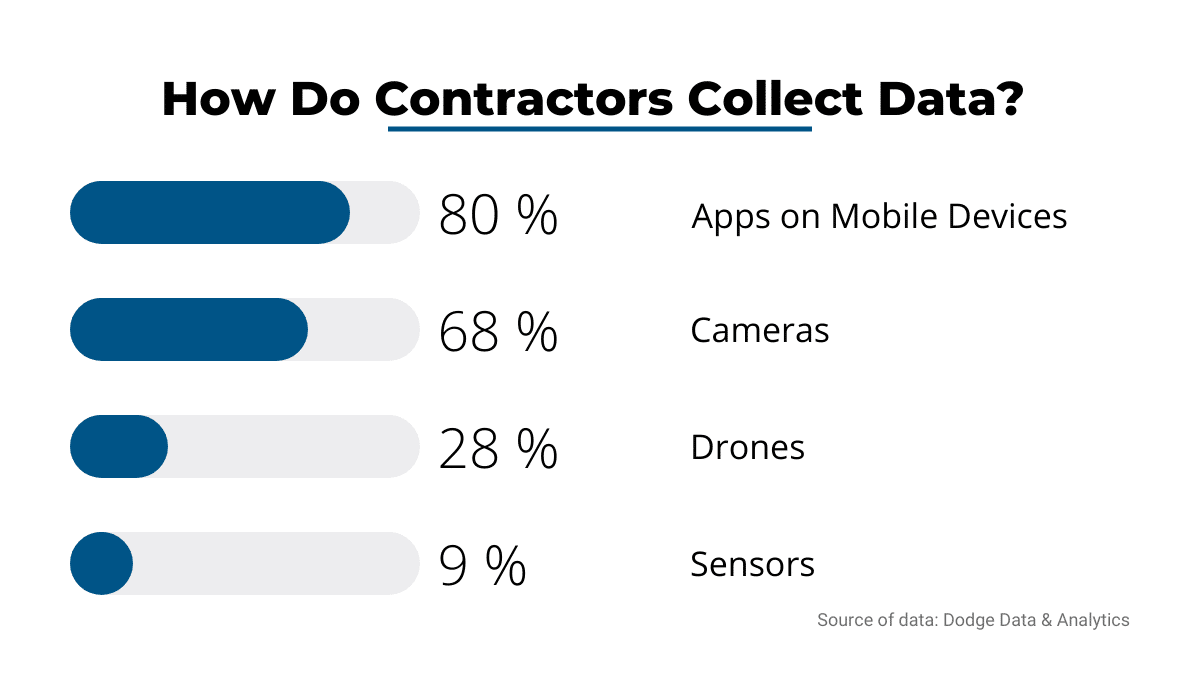
Apps help you gather data and keep important documents in a centralized system. This streamlines processes by allowing workers to access the necessary information in real-time.
Furthermore, task coordination is much easier because workers can be immediately notified if any changes are made.
For example, if you use an asset tracking software like GoCodes, you can get plenty of information on a single platform that your entire team can use.
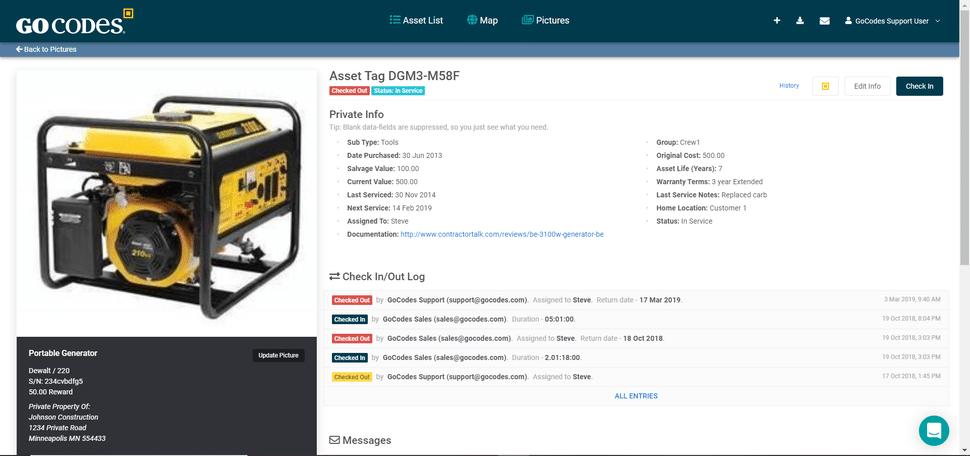
Your accounting team can check the warranty of the asset for insurance and tax purposes.
Then, your maintenance team can look into the next scheduled maintenance cycle and see notes from the previous maintenance session.
Or, a field worker can verify the asset’s check-in/out history and see whether it’s currently available.
Basically, working off the same set of data means teams can work more efficiently, and nobody gets left behind to do their daily work.
All in all, using apps to enhance communication and collaboration is indispensable if you want to create a productive team.
Match Skills to Tasks
We’ve already mentioned that every team member needs to be kept accountable for their work. Along with that, it’s important to match skilled workers with the appropriate construction task.
Why?
First of all, if you allocate tasks to inexperienced workers, you’ll inevitably have to deal with two things.
One is getting other workers to supervise the less-skilled ones—and angering the former because they’ll have to neglect their primary tasks in favor of providing guidance.
Another is potentially having to do some rework because workers are doing tasks outside of their expertise.
Like this contractor puts it, unless they’re working with someone who is on their level when it comes to knowledge of the job, your field workers will feel like they’re mentoring (even when it’s not their responsibility).

When you’re trying to meet deadlines, it’s tempting to assign more work to your employees, even if they have little experience with the type of task that has to be done.
But that will only disrupt the entire team dynamic and lead to more disputes.
Yet, if you believe this is a rare phenomenon, the latest research by the Commercial Construction Index revealed that 74% of contractors are asking skilled workers to do more work.
In other words, they’re not just asking them to do overtime but also to help with tasks that they’re not entirely qualified for.
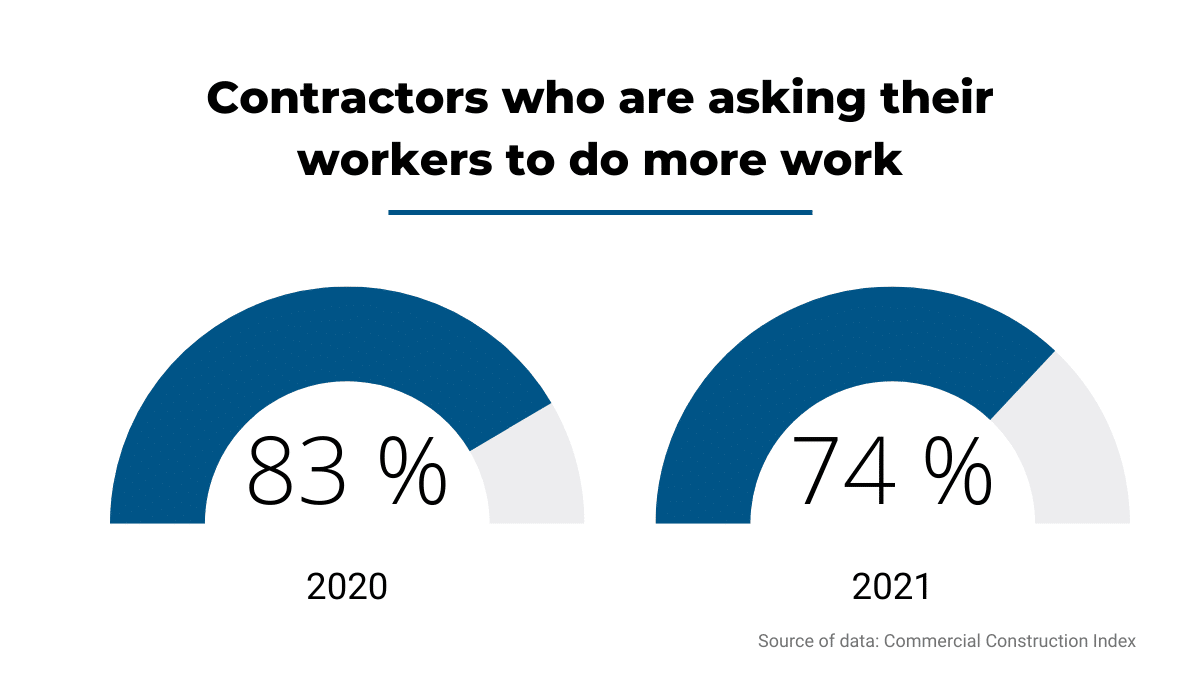
Obviously, you want to finish your projects on time and within budget. But to do that effectively, it’s essential to match your workers’ skills with appropriate tasks.
That way, there are fewer operational problems, and the team works more cohesively.
Set Team Goals
Assigning tasks to employees means nothing if they don’t understand the bigger picture.
Or, to put it differently, to have a more productive and united construction team, you need to establish the goals for the project and the team.
The best way to do that is to brainstorm as a team and get input from everyone at the initial or preconstruction meeting.
People who work together to create shared project goals are more likely to stick to them. For example, they should agree on:
- Minor project objectives
- Appropriate materials
- Construction techniques and methods
- Safety program
- Scheduling and budget goals
Developing project goals as a team creates a sense of ownership in individual team members who will work hard to cooperate and achieve them.
It’s also important to note that all goals and objectives need to be realistic and attainable. Otherwise, they won’t be effective.
At Wollam Construction, they believe that even complicated projects can become simple if the team works together to meet project goals.
So, at the beginning of each project, they determine tasks, milestones, and the project’s overall purpose.
Then, it’s easier to explain to each manager their duties and how they contribute to the project.
Later, the managers share the same expectations and goals with other workers. This encourages them to work as a unit and focus on elements that will move the project forward.
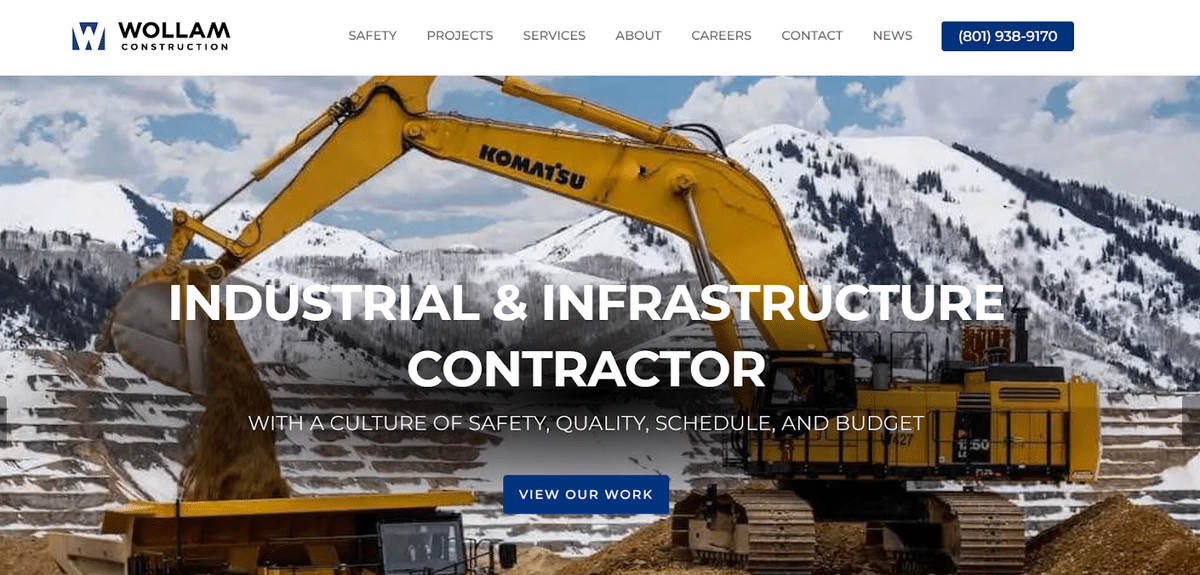
Because each team member knows the underlying process, the company believes this increases their chances of success.
In the end, defining goals properly is a great way to bring the team together and join their individual expertise into a united vision.
Hold Team Meetings
Team meetings contribute to establishing cohesion in a construction team in a variety of ways.
For one thing, they add a social aspect to work. Namely, seeing other people involved in the project creates a sense of team identity and familiarity with other people.
However, it’s important to note that his social aspect is actually a bonus—what team meetings really need above all else is a purpose.
This means that most meetings should be scheduled for the following:
- Information sharing that can’t be done through other means (apps, communication platforms, etc.)
- Decision-making
- Work allocation
In a nutshell, construction meetings are a call for action and making important decisions regarding the project that must be solved face-to-face.
Following that, to have the most effective meeting, a formal agenda needs to be shared beforehand, so everyone can be aware of the main discussion points and come prepared for the meeting.
To understand how important well-conducted meetings are for better teamwork and successful project completion, here’s an example of French Kier Anglia workshops.
Though they’re called workshops, they’re essentially construction meetings.

At one of their year-long projects, they organized bi-monthly workshops that were highly structured but informally run.
Each workshop was managed by a Managing Director and attended by up to 20 people involved in the project.
The first workshop was introductory, where the team created a mission statement about the project and agreed on the main project goals.
Then, the following ones were dedicated to progress reports, identifying problems and solutions.
At each workshop, the team rated their current progress against the goals they outlined at the beginning.
This resulted in the project being finished on time and within budget. More importantly, there was clear teamwork with no disputes.
Remember that time is essential for construction, so every meeting you schedule should be productive and drive the project forward with effective teamwork and collaboration.
Appoint Good Team Leaders
If you want your team to work together and achieve the project’s goals successfully, it’s important to appoint a team leader. But you should be mindful of who you choose for this role.
Not anyone can manage other people, and unsuitable managers do more harm than good.
As this construction worker explains:

Essentially, team leaders have one important task: ensuring that everything runs smoothly. But they also need to create a welcoming and supportive working environment for the entire team.
They should make everyone’s contribution to the project known and provide constructive feedback, while making team members feel valued.
But more importantly, the team leader is the main person other team members can ask for resources and information they need to complete their tasks.

To put it simply, good leaders inspire and motivate, so choosing the right team leader can often mean the difference between creating a productive or an indifferent construction team.
Encourage Relationship Building
Trust is one of the key elements of effective teamwork. In construction, people from different professions and backgrounds must work and collaborate together, so building respect and trust is necessary.
That way, they’ll appreciate each other more and the individual work they do towards the same goal—a project completed to everyone’s satisfaction.
Furthermore, they’ll value each other’s opinions and be more inclined to work together.

So, how do you improve relationships in your construction team?
This could be done in various ways:
- Team building exercises
- Happy hours
- Company-wide parties
- Social events
- Individual or group visits to other people’s offices
- Team workshops
The core idea of these activities is for people to spend more time with others in a relaxed manner.
After all, bringing a bit of fun into the workplace can improve team dynamics and foster better teamwork.
But you should also carefully consider which activities you include for team building.
Not everyone is happy doing sports or physically demanding activities, while others detest sharing personal information about themselves.
You can take suggestions from this Reddit user, who works for a company that sets up quarterly team-building events.
This user reports particularly enjoying go-karts, laser tag, company-sponsored dinners, and movie nights, among other things.
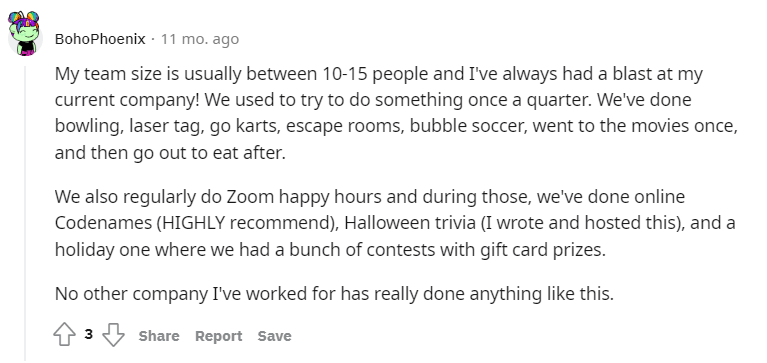
Obviously, you can’t organize a team-building event that will satisfy everyone.
That is why you should never make these company activities mandatory. When people are forced into social situations, they just wait for it to be over without actually feeling the team spirit.
So your efforts to create a more connected team will be futile.
All in all, implementing the right activities to foster relationship building is one of the best ways to create a more positive-minded and collaborative construction team.
Conclusion
An effective team will produce well-designed, high-quality construction projects.
But shaping such a team starts with small steps such as better organization, setting team goals, holding team meetings, and encouraging relationship building.
Individual members need to feel like a part of a team that works towards a bigger goal and solves any related problems.
Hopefully, our tips have helped you identify some core issues in your team’s ability to work together, and you’ll implement them to improve teamwork in your company.

